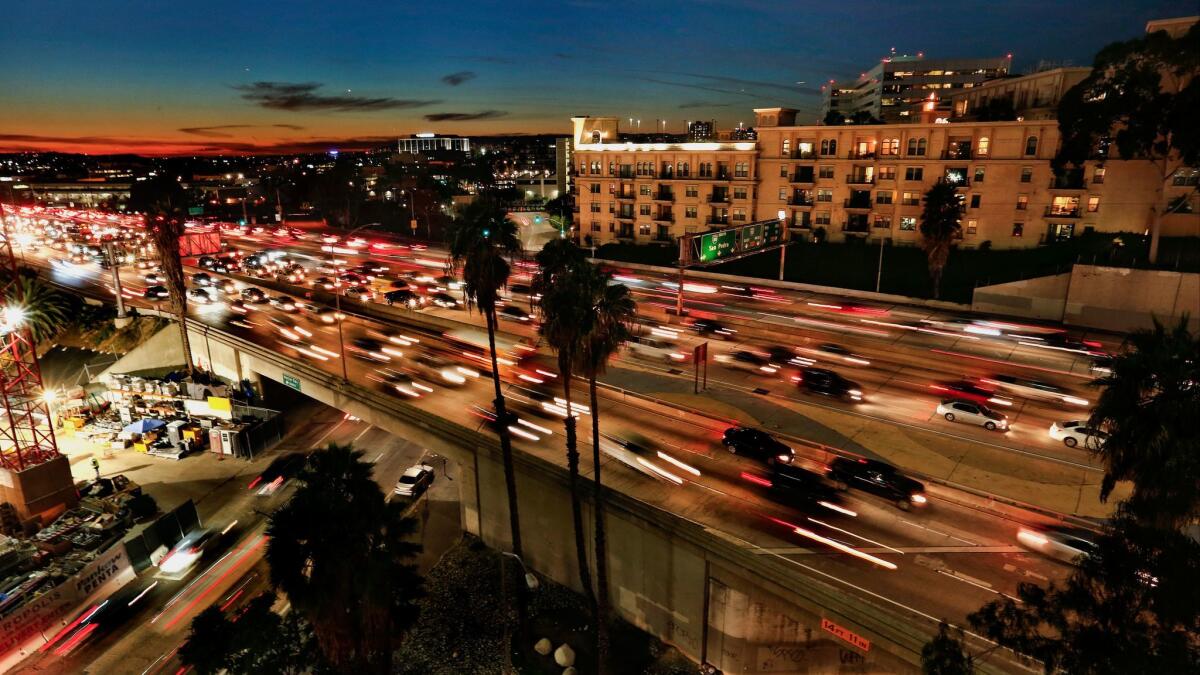What to expect when Trump takes on fuel economy and clean air regulations Wednesday

Reporting from San Francisco — The Trump administration is expected to announce a review of fuel economy and emissions regulations Wednesday morning that could lead to an overhaul of the standards set in place by the Obama administration.
Current emissions rules were put in place in January, when President Obama’s Environmental Protection Agency finalized mileage and emissions standards for model years 2022-2025. Those standards call for a real-world fuel-burning performance of 36 miles per gallon on average, up from 26 mpg today.
A rollback of those rules would have major ramifications for automakers, who for the last several years were under government pressure to build more fuel-efficient cars. Many have complained that the standards were too tough to meet and didn’t make sense given historically low gasoline prices and consumer preferences for SUVs.
So what exactly will President Trump announce when he travels to a driverless car research center in a suburb of Detroit on Wednesday morning?
Three possibilities:
More time. The Obama EPA had until April 2018 to set its standards, but rushed them in before Trump took over. Trump could ask the EPA come out with a new set by April 2018 or later. Scuttlebutt says this is the most likely possibility, though no one really knows. It would invite lawsuits.
An immediate rollback. Trump could immediately ease or scrap the 2022-2025 regulations. This is an unlikely maneuver because such action usually requires a reasonable explanation based on science, technology and the marketplace, and there’s hardly been time to create such a document. Still, it’s possible. It would invite lawsuits.
The nuclear option. Trump could kill waivers that currently allow California to set its own mileage and emissions standards, a regime that dates to 1970, when the federal Clean Air Act was enacted. This would do more than invite legal action: It would create a brutal battle between the president and the state of California. Gov. Jerry Brown and other top-ranked California officials have vowed that they’ll fight to preserve what they see as federally enacted California state rights.
Twitter: @russ1mitchell







